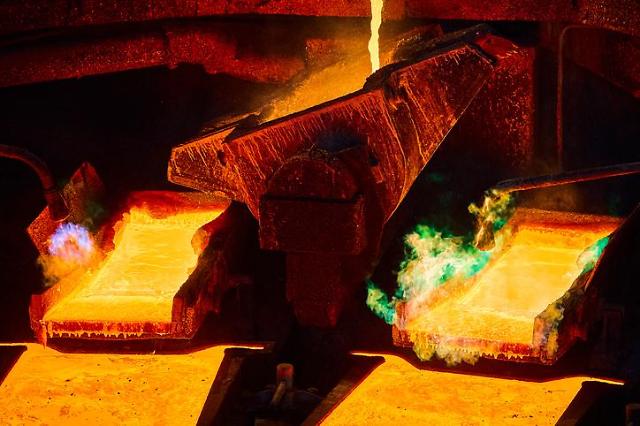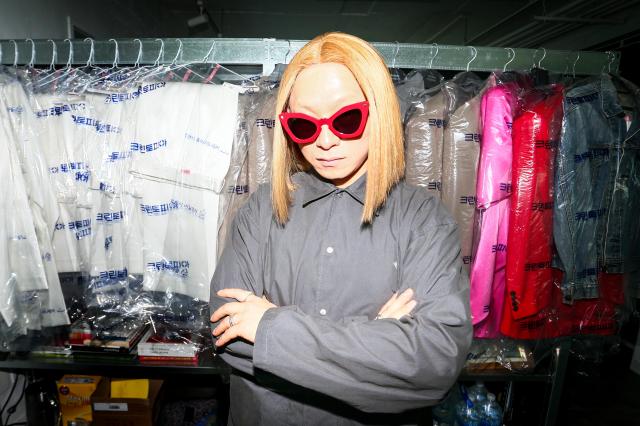
[Gettyimages Bank]
SEOUL -- Australian Strategic Materials (ASM) is an Australian company building a global rare earths and critical minerals business with a strong partnership with Korea. Aju Business Daily interviewed ASM CEO Rowena Smith in written form to ask her about her company’s Dubbo Project, its eco-friendly aspects, their "mine to metal" strategy. We also asked her for the reason her company decided to form such a strong relationship with Korea. She provided some unique insights on what differentiates ASM from its competitors and what Korean companies ASM is already closely cooperating with. She also outlined the company’s future goals.
Q1. Please introduce the Dubbo Project, the core of your business.
In the 1950s, a massive deposit of various metals was found in Toongi, Dubbo in central western New South Wales, Australia, and the deposit turned out to contain rare earth elements.
What makes these metals important today is that they are used in all our most powerful, futuristic tools. They are in our phones, computers, electric vehicles and wind turbines as well as used in the defense and aerospace industries.
Securing a stable supply of rare earth elements has become a priority for many countries given that the critical metals will be increasingly used in the eco-friendly energy business as well.
With the global push to deliver Net Zero by 2050, we need to electrify the world's energy system quickly. Therefore, we need a more diverse, secure and reliable supply chain for these metals.
The Dubbo Project serves as a sustainable and reliable source of core minerals such as rare earth elements, meeting rapidly increasing demand for these materials in the global market.
The Dubbo Project is at the core of ASM’s operation, and the company aims to produce critical metals in an efficient and eco-friendly way that minimizes the environmental carbon footprint.
Our objective is to become a leading global supplier of critical metals. This means developing the Dubbo Project and using products from Dubbo but also other products from third parties to produce critical metals in ASM metal plants.
Q2. How important is the eco-friendly aspect of operations at the Dubbo Project?
ASM's Dubbo Project is not only focused on providing an alternative and secure source of critical metals, but it also puts a great emphasis on producing products in an eco-friendly and sustainable manner, targeting net zero carbon emissions. Therefore, ESG principles are an essential pillar of the company's ethos.
For us, what’s important is delivering that supply with ESG as a priority. As we are producing the minerals and metals that will enable the clean energy transformation it is important that our supply chain is also sustainable. Our entire process chain at ASM is very much focused on minimizing environmental impact.
About one-third of the rare earth mine land owned by ASM is operated as a ranch to raise cattle and sheep. These operations help contribute to ASM’s ongoing commitment to managing and monitoring biodiversity.
Q3. Please explain ASM’s "mine to metal" strategy.
ASM’s "mine to metal" strategy allows direct supply through our vertically integrated production process of critical metals. We undertake all steps to produce critical metals from the beginning to the finished product: from the mine, through multiple processing and refining stages, to metallization, alloy, and metal powder production. By producing these rare earth metals and metal oxides, we can de-risk Korea's supply chain.
Our mine-to-metal strategy currently involves two key projects. The first is a planned rare earths and critical minerals mine in New South Wales in Australia and the second, a processing operation at our Korean Metals plant in Ochang. We collaborate closely with industry, research institutions, and the government to help Korea secure the critical minerals, rare earths, and high-tech metals it needs for its manufacturing industries.
The rare earth metals produced from the Dubbo Project have the potential to supply a significant portion of the Korean market's demand currently mostly met by China.
Q4. Why did you decide to form a partnership with Korea?
We were searching for strategic partners around the world to facilitate our envisioned global metal production. We happened to meet a Korean professor from Chungnam National University in 2018 who had an idea about clean metal processing technology. This meeting later resulted in ASM's acquisition of Ziron Tech in 2020. Ziron Tech has become Korea Strategic Materials Technology which has an innovative metallization process.
In 2020, ASM received a Korean government grant to build a plant in Ochang, North Chungcheong Province. The Korean government has made efforts to de-risk the country's global supply chain of rare earth metals by finding an alternate source of supply.
Considering the importance of securing a stable supply chain of key metal materials like rare earth elements, it is necessary for a country to diversify the source of their rare earth imports.
The Korean government was clear in its goal to de-risk this supply chain so it could become more self-sufficient.
Q5. What made you decide to build a plant in Ochang?
The Ochang metals plant was chosen as it enjoys logistical advantages with its close proximity to major manufacturers in Korea.
Ochang is a strategically important location for us as it is situated in the heart of an important manufacturing and technology hub that provides us with access to manufacturers and customers with a need for the high-tech metals that can be produced at our metals plant. This enables us to collaborate with them on product development and technical work to refine our product suite to serve their needs.
The objective of what we're trying to do in Korea is to ensure that Korea has the resources it needs to support its manufacturing businesses for as long as possible. One of our major goals was to use innovation that was developed in Korea to de-risk the Korean supply chain.
It is clear that there is a natural bond between manufacturing-focused Korea and resource-rich Australia. Australia's and Korea's respective advantages, business culture, and shared values make us perfect partners to develop our business using Australian natural resources and Korea's access to skills and technology. This mutual collaborative relationship between the two countries is the strengthening of the trade relationship in securing a long-term stable supply chain for Korean manufacturing.
Q6. Please introduce the Korean companies that you’ve been closely collaborating with.
We are delighted to have Hyundai Engineering engaged to deliver engineering, procurement, and construction definition work for the Dubbo Project, ahead of a final investment decision.
We were pleased to welcome NS World in September last year as the first customer of the KMP, with their purchase of neodymium/praseodymium metal ingots from the plant.
We also welcomed KCF Energy as an investor in ASM last year, with their US$15 million in equity investment.
We have also entered into agreements with the Korean Mine Rehabilitation and Resource Corporation, the Korean Development Bank, and North Chungcheong Province to establish secure supplies of rare earths and critical minerals into Korea.
We are having discussions with many organizations in Korea about collaboration, product development, and off-take arrangements.
We are strongly encouraged by the level of interest and support we have received during the many years we have been building relationships in Korea.
Q7. What are the points that differentiate you from your competitors?
ASM has a vertically integrated approach – meaning we will be able to control our value chain from our mine in Dubbo to our Metals Plant and on to our customers.
Having this level of control means we will be able to offer reliable, secure and high-quality products to global markets, looking for security in their supply chain.
In Dubbo, we have a globally significant, high-quality resource supported by solid research and development to ensure we will have a product suite to meet market needs.
In Korea, we have deep relationships that have helped us develop the Korean Metals Plant and which gives us market access and collaboration opportunities with Korea’s globally significant manufacturing industries.
Q8. Why rare earth materials are becoming important?
With the global push to deliver Net Zero by 2050, we need to electrify the world’s energy system quickly, and that means an exponential scaling up of the production of electric vehicles, wind turbines, and a host of other clean energy technologies. To do this we need a more diverse, secure and reliable supply chain of metals such as neodymium, praseodymium, dysprosium, and terbium - and that supply chain needs a lot more capacity.
The global critical minerals supply chain that feeds the production of permanent magnets and other critical metals products is highly concentrated, lacks transparency, and carries significant risks for participants – particularly for the end users of the metals products derived from critical minerals.
Our vision is to become an integrated global producer of rare earths, critical minerals, and high-tech metals to help solve the supply chain challenges.
Q9. What is your ultimate goal?
The global critical minerals supply chain that feeds the production of permanent magnets and other critical metals products is highly concentrated and carries significant risks for participants, particularly for the end users of the products derived from these critical minerals.
We envision ourselves becoming an integrated global producer of rare earths, critical minerals, and high-tech metals to help solve all supply chain challenges.




![[INTERVIEW] Creating robots designed to free people from work](https://image.ajunews.com/content/image/2024/04/08/20240408111400614492.jpg)